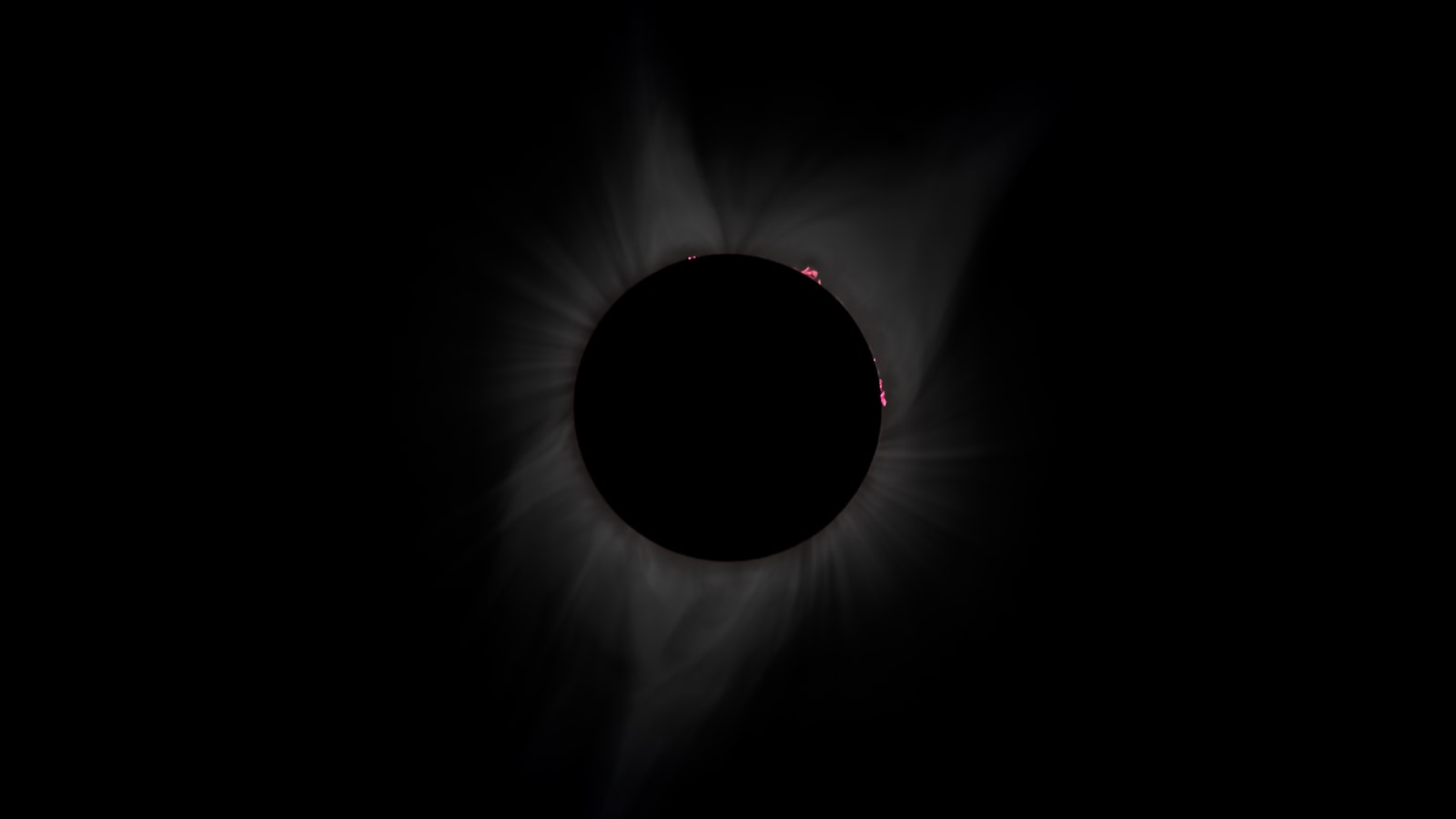As the Earth dances in tandem with the moon and the sun, we are occasionally graced by the celestial interplay that gifts us with an eclipse. But have you ever wondered what these phenomenal events are called around the world? Join us on a linguistic and astronomical journey, as we explore how cultures across the globe describe an eclipse. Buckle up, it's going to be an enlightening trip (pun intended)!
Source: Unsplash
Eclipses have been awe-inspiring spectacles that have fueled myths, legends, and science throughout human history. They are global events with local flavors, depicted in the rich variety of languages spoken across our planet. Let's dive into this melding pot of words.
A Luminous Beginning: Starting With Our Own
In English, "eclipse" comes from the ancient Greek word 'ékleipsis', meaning 'abandonment', 'downfall', or 'darkening of a heavenly body'. The term captures the dramatic obscuring of one celestial body by another. But as we take a linguistic leap across the globe, we discover the same cosmic phenomenon described in myriad ways.
Europe's Diverse Eclipse Terminology
Romance Languages: A Shade of Latin
- French: "Éclipse"
- Spanish: "Eclipse"
- Italian: "Eclissi"
The Romance languages pay homage to their Latin roots with very similar terminology – all just a stone's throw from the original ‘ecclipsis’.
Germanic Twists
- German: "Finsternis"
- Dutch: "Verduistering"
- Swedish: "Förmörkelse"
As you head north in Europe, the terms grow more descriptive. Reflecting the Germanic love for compound words, "Finsternis" tells of darkness while "Verduistering" and "Förmörkelse" reflect the action of darkening or 'murking'.
Slavic Subtleties
- Russian: "Zatmeniye"
- Polish: "Zaćmienie"
The Slavic languages add their special poetic touch, where the common root 'затмевать/zaćmić', means 'to overshadow'.
The Asian Eclipse: A Tale of Sun and Moon
From east to west, Asia's vast array of languages offers captivating titles to eclipses:
- Mandarin: "日食" (Rìshí) for solar and "月食" (Yuèshí) for lunar
- Japanese: "日食" (Nisshoku) for solar and "月食" (Gesshoku) for lunar
- Hindi: "सूर्य ग्रहण" (Surya Grahan) for solar and "चंद्र ग्रहण" (Chandra Grahan) for lunar
With character and script that are as artistic as their words, Asian languages often combine symbols representing the sun, moon, and the act of consuming or being hidden.
When Africa Watches the Sky
Languages of this rich and diverse continent have their unique expressions to signal eclipses:
- Swahili: "Kupatwa kwa jua" for solar and "Kupatwa kwa mwezi" for lunar
- Zulu: "Ukudliwa Kwelanga" for solar and "Isicwebezeliso Senyanga" for lunar
A testament to the poetic nature of African languages, these terms often encompass the motion and interaction between the celestial bodies.
Astronomy fans, are you itching to know when the next eclipse will feature in the night sky canvas or dance upon the blue curtain of day? Look no further than eclipse-timer.com! Want to experience the next eclipse from the comfort of your home or prepare for an eclipse-chasing adventure? This invaluable tool will keep you informed about upcoming solar eclipses in the world or in your local area down to the precise time and date. Never miss an astronomical rendezvous again!
Source: Unsplash
Our global exploration wouldn't be complete without delving into the traditions and modern interpretations surrounding eclipses:
Cultural Beliefs and Superstitions
From dragon-eating suns in China to Rahu swallowing the moon in Hindu mythology, every culture has its own tale to tell about eclipses. They've been seen as harbingers of doom or divine omens, influencing everything from royal affairs to crop planting.
The Scientific Angle
Modern astrophysics provides us with a less fearful and more curious viewpoint. Eclipses are seen as celestial mechanics at play and serve as critical tools for scientific discovery, such as validating Einstein's theory of general relativity during a solar eclipse.
Eclipse Tourism
These days, eclipses create a buzz of excitement and a surge in travel, with eclipse chasers jetting off to the most optimal viewing spots. Local economies revel as thousands gather to witness the cosmic spectacle.
Stay connected with eclipse-timer.com to join the global community anticipating these awe-inspiring events. Opt for the best viewing location, or simply sit back in your backyard; let the cosmos show you a performance that transcends language and culture.
Source: Unsplash
In wrapping up our journey, we've surveyed the globe and experienced the fascinating ways cultures express the occurrence of eclipses. From the ominous to the grandiose, each term adds a hue to the global tapestry of language and reminds us that we all share the same sky.
Remember, keeping up with eclipses is a breeze with eclipse-timer.com. It provides a universal language of its own – the language of precise timing and enthusiasm for the stars.
Eclipses are not just celestial events; they are linguistic and cultural phenomenons that bridge the earthly with the cosmic, the ancient with the modern. They show us that despite our diverse ways of expressing and understanding them, we all look up in wonder at the marvels of the universe together.
So, whether you're a seasoned eclipse chaser or a newcomer eager to witness the solar system’s spectacular ballet, consider this your cosmic invitation. Keep your eyes to the sky, and maybe, just maybe, you'll find yourself lost in translation beneath the shadow of the moon.
Keep the conversation stellar: 🌟 Have you experienced an eclipse in a different part of the world? How did the local language enrich your experience? Share your stories below, and let's celebrate the linguistic unity and diversity under the celestial dance of eclipses. 🌘






















